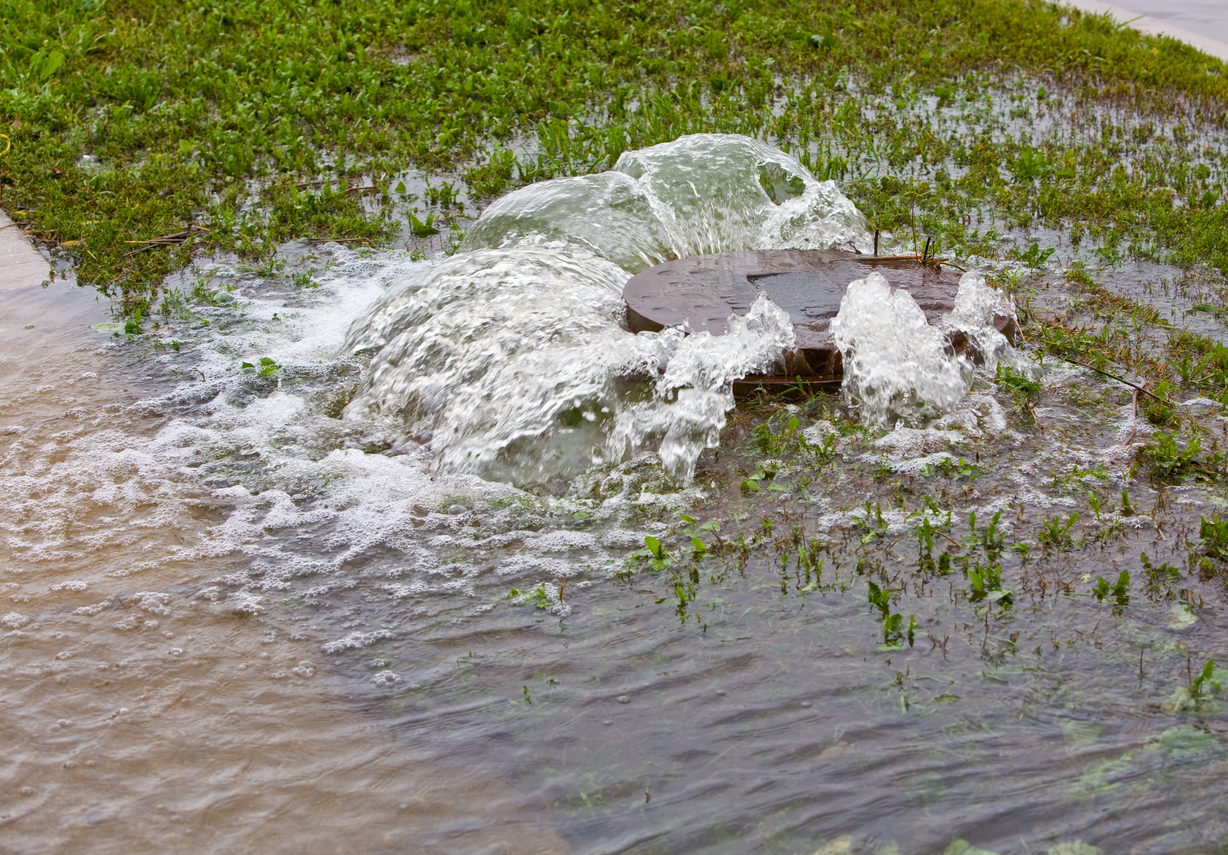As climate change results in more severe weather events across the globe, insurance companies and policyholders alike are grappling with what more frequent and severe storms mean for already-contested terms like surface water.
What Is Considered Surface Water in Insurance?
As we recently wrote here, surface water is defined as “water that accumulates on the ground’s surface,” which usually results from some kind of precipitation, and that does not flow “within a defined channel or watercourse.” In other words, surface water is water from a rain or snow event that has collected on the ground (and that does not flow in an existing pool, pipe, or channel). Insurance policies almost always exclude damage caused by surface water from property insurance policies, arguing that any water damage is covered under a separate flood insurance policy
This gets even more complicated for the policyholder when insurance companies start denying claims for things like burst water mains or heavy rainfall by calling them surface water events. However, the definition of surface water is highly variable depending on the municipality and the language of the policy.
Is Rainwater Considered Surface Water?
That depends on where the rain falls, how it behaves after it’s fallen, and how your policy defines a surface. For instance, in Union Street Furniture and Carpet, Inc. v. Peerless Indemnity Insurance Company,1 an insurance company attempted to claim that the heavy rain that caused water to seep through the walls, chimney, and skylight of a commercial property was, in fact, surface water because it had first collected on the building’s surface, and thus wasn’t covered under the business’s personal property insurance. Additionally, most of the damage was caused by water that flowed into the facility from the parking lot through the loading dock.
Peerless argued the water damage to Union’s business personal property was not an insured loss because the damage was caused by a “flood” or by “surface water.” Peerless also argued that the water that came through the roof that also damaged the business personal property was “surface water” and because of the anti-concurrent clause, the contents were not insured.
In rejecting Peerless’ interpretation of the term “surface water,” the court indicated that water from precipitation (rain or snow) flowing on the ground outside of any defined channel, but that water which accumulates on a roof from rain, does not qualify.
What Is the Definition of Groundwater for Insurance?
Groundwater and surface water are not the same. Groundwater is water that naturally originates underground, like from an aquifer; it can seep into basements or become surface water, but it is distinct from surface water in that the courts consistently define surface water as collecting on a surface. For the exact distinction, consult a licensed public insurance adjuster who is knowledgeable about your area who can help you review the exact language of your policy.
Does Homeowners Insurance Cover Damage from Heavy Rain?
Homeowners insurance coverage for damage from heavy rain can be tricky. It depends on how the rain gets into your house and what caused it. As we’ve seen, damage caused by floods is not covered under homeowners insurance, even when the flooding is caused by heavy rain. Homeowner’s insurance also typically doesn’t cover rain damage if it results from neglect; for example, if you leave a window open or have failed to maintain your roof and rain gets in that way, you generally won’t be covered.
You are most likely to be covered when the rain damage is the result of a covered peril: If a wind or hail storm causes damage to your roof, for example, and then the associated rain causes water damage, most homeowners insurance policies would likely cover rain damage in that instance.
Does Flood Insurance Pay for Broken Pipes?
No, flood insurance typically doesn’t pay for broken pipes. Flood insurance is meant to cover damage resulting from rising water caused by external sources, such as overflowing lakes or rivers. Broken pipes are often covered under a homeowner’s policy since they are internal to the structure.
What Is Considered Surface Water in Texas?
Texas courts have ruled that, when water damage is caused by non-flood water, the damage is not excluded from property insurance coverage in the same way water damage caused by a flood would be. This opinion was cited in Gemini Color Lab v. Hartford Casualty Insurance Company2; in this case, damage resulted from a backup from a drain connected to the sanitary sewer after a flash flood. The Gemini court cited a Texas appellate court, State Farm Lloyd v. Marchetti,3 which stated that “when the loss is a consequence of the invasion of the insured premises by non-flood water, even though the invasion may have been proximately caused by flood water, the [water] exclusion does not apply.”
In the Gemini case, a flash flood overwhelmed the sewer system, which backed up and caused damage to an individual policyholder’s property. The courts subsequently found in favor of the policyholder, ruling that, even though a flood had caused the backup, the damage itself was not flood damage.
This could be good news for policyholders looking to protect their investments in the age of climate change, as the courts work out what exactly counts as surface water versus a flood.
Further Resources on Insurance Coverage Law
Navigating the complexities of insurance claims can feel overwhelming. Whether you’re facing unpaid claims or simply filing for the first time, our eBooks equip you with the crucial information you need to advocate for yourself with confidence.
- Filing A Property Insurance Claim
- Insurance Company Response Time
- What To Do When You Have a Denied/Underpaid Claim
- Wildfire Claims
- Flood Claims Handbook
- More Information on Hurricane Deductible and Policy Limits
- Condominium Hurricane Preparedness
Why Merlin?
Are you fighting an insurance company that won’t pay up on claims? With nearly 40 years of practice and $2 billion in recovered claims, our team stands by your side to ensure you can face any insurance challenge with confidence. Contact us today for a consultation, or read more about how we’re your trusted advocate.
_________________________________
1 Union Street Furniture and Carpet, Inc. v. Peerless Indem. Ins. Co., 54 Conn. L. Rptr. 849, 2012 WL 5519614 (Conn. Super. Ct. Oct. 23, 2012),
2 Gemini Color Lab, Inc. v. Hartford Cas. Ins. Co., 36 Conn. L. Rptr. 605, 2004 WL 574676 (Conn. Super. Ct. Mar. 8, 2004).
3 State Farm Lloyd v. Marchetti, 962 S.W.2d 58, 61 (Tex. App. 1997).




